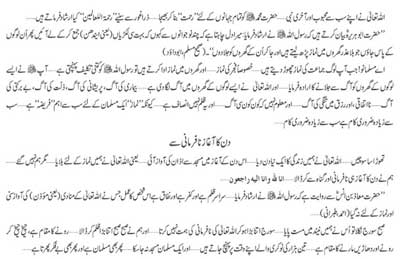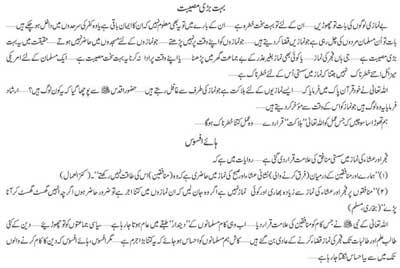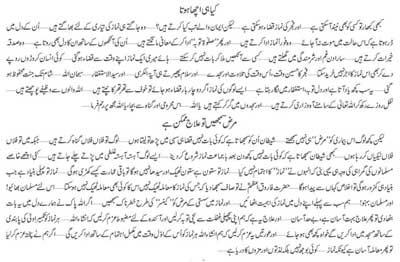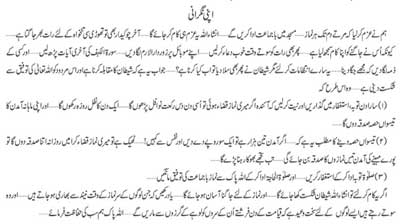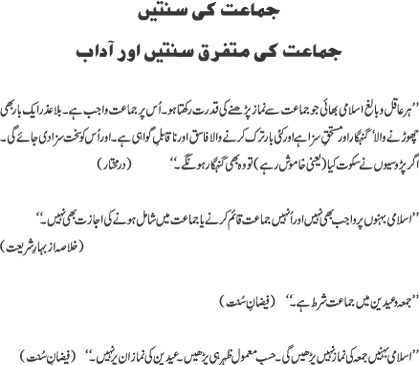
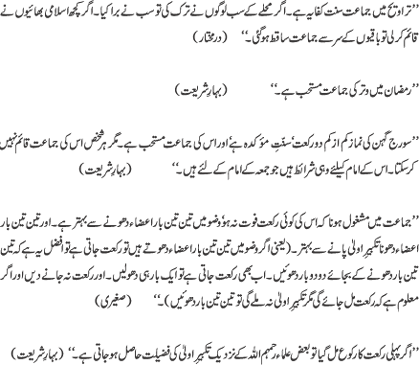
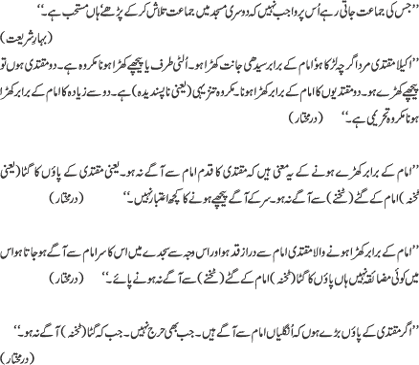
10 Ways Of Honoring Servants
Most Muslims in Eastern countries employ domestic staff as a norm. For some, domestic helpers are a priceless resource who significantly ease our day-to-day chores. Conversely, for others, they can be a source of distress and chagrin.
Many women complain to each other about the trouble they face from the incompetence, treachery, and intentional misdemeanor of their servants. However, we need to remind ourselves that it is in managing our helpers according to Islamic injunctions that the secret lies to get the best out of them.
- Think of their pay as Sadaqah
We need to change the way we view our servants’ wages. By considering it an “expense,” we tend to extract the “full value” of the money. For instance, even if a maid is sick, her employer might say, “I pay her to work, so she must work.” But if we consider the salary a “Sadaqah” that helps fill their bellies, we will In Sha Allah be more tolerant of their shortcomings as human beings.
- Counsel them when they need it
You might notice that your domestic helpers are disturbed on some days. They are human beings who have problems and worries just like us. Ask them what is troubling them; then advise them to have patience and hope in Allah’s mercy. Keep the counsel short, but show them that you care.
- Forgive and forget their mistakes
Just like other human relationships, it is not pleasant to have your past mistakes and wrongs thrown in your face repeatedly. Forgive them for the sake of Allah if they wrong you, and do not be harsh when scolding them.
- Do not accuse them of stealing, cheating, or lying on mere suspicion
Many employers are guilty of this unfair action – as soon as something in the house is missing due to their own absentmindedness, the domestic helper is squarely accused of theft or negligence.
“O you who believe! Avoid suspicion as much (as possible): for suspicion in some cases is a sin.” (Qur’an, 49:12)
Ask them normally if they have seen the missing object, but do not accuse them of theft or misplacement. In most cases, the object is eventually found after the maid has been fired, causing guilt and embarrassment to the employer for life.
- Informally teach them Islamic manners and knowledge
One of the rights of our domestic helpers upon us is that they are taught about Islam, or given its message if they are non-Muslims. Without being overtly ‘preachy’, give them small doses of the truth. The best way is to act upon Islam yourself. This will eventually make them love and respect you for the sake of Allah – which results in a sincere relationship devoid of mistrust and treachery.
- Eat with them occasionally without separating utensils
Domestic helpers are not animals. Some people treat them as if they are unhygienic beings from another planet. Allow them to use the utensils from which you and your family eat. If they have dirty habits, teach them hygiene. But do not separate their utensils as if they are untouchables. This will make them feel insulted. They will never return an insult with loyalty or obedience.
- July, 20
- 4095
- Human Rights
- More
Namaz Ki Ahmiyat
I’tikaf – The Spiritual Retreat
The Messenger of Allah (blessings of Allah be upon him and his family) is reported to have said:
“The persons who seclude himself (for I’tikaf) in true faith and hope (of reward from Allah), all of his previous sins shall be forgiven.” (Kanzul Ummal, Hadith 24007)
The meaning of Itikaf is to seclude oneself in the Masjid with the express niyyah (intention) of Itikaf.
Allah has indeed in his perfect wisdom created humanity in a unique way. He has made it such that from time to time His creation needs a rest. We rest at night to give our bodies time to recover. Birds retire to their nests, horses to their stables, bees to their hives, etc. However, there comes a time when more intensive rest or retreat is required. Sometimes due to a person’s physical condition, he is admitted into the hospital’s intensive care unit allowing his or her body time to recover.
Likewise, the soul also needs to recover from the hustle and bustle of the world, the spiritual pollution caused by evil elements of society, the rat race of wanting, desiring, and acquiring more of this world, and the distractions that have diverted our mind, heart, and soul from the remembrance of Allah Ta’ala and His Beloved Messenger Muhammad (peace be upon him).
The Intensive Care Unit(ICU) for the soul is the Musjid and Itikaf is the facility within this ICU to allow the soul to not only recover but be spiritually rejuvenated!
Itikaf is indeed a Spiritual Retreat!
Inside each and every human being, a constant battle rages. It is like a battle between two wolves. One of the wolves is evil. It is full of hate, lust, and greed. His fangs drip with bitterness and strife. The other wolf is a good one. He is full of love, compassion, and honesty. He never betrays his brother.
These two wolves are constantly at war. Which wolf is going to win the battle?
The answer is quite obvious…. Whichever one you feed.
Our soul is being bombarded by forces of good and evil. We need to feed it good so that it overpowers the evil….and Itikaf is indeed an excellent opportunity to achieve this.
Since the life of the transient world keeps us busy for the whole year with studies, work, social functions, business, traveling, and other such things that cause us to be negligent of our souls and the next life, we may sometimes think that these things are the sole purpose in life and thus, we end up forgetting our true goal – Allah (Glory and Greatness be to Him). Thus, it is for this reason that I’tikaf is referred to as “The spring of life in a world struck with the drought of the negligence of Allah (Glory and Greatness be to Him).”
The period of I’tikaf is the best time to force one’s self to sit and think and reflect on the self and the world around; the period of the I’tikaf is the best time to forget the worries of the transient world and to return to nurturing the soul and linking oneself with the Creator of the soul; the period of the I’tikaf is the best time to return back to Allah (Glory and Greatness be to Him) in true repentance for our sins committed through the year and to give our souls the spiritual strength desperately needed to live a spiritual and pure life in this challenging world.
How To Attain ‘Al-Khushoo’ In Our Prayers
How is it possible for us to gain ‘Al-Khushoo’ (Humility) in and outside of the prayer and during the recitation of the ‘Quran’?
‘Al-Khushoo’ is the essence and core of the prayer. And it means the presence and attendance of the heart! And that the heart of the person who is praying does not wander left and right.
However … if the person senses something that will divert him away from (this) Al-Khushoo’ then he must seek refuge with Allah from the Outcast Shaytaan just as the *Prophet*…[sallahu ‘alayhi wasallam ]instructed us to do!
And there is no doubt that the ‘Shaytaan’ is extremely assiduous in spoiling all acts of worship, especially the ‘Salah’ which is the most superior act of worship after the Two Testimonies.
Thus, the ‘Shaytaan’ comes to the ‘Musalli’ (Praying individual) and says …or whispers Remember this and that and he causes him to indulge in thoughts and ideas that are of no benefit and which leave his head soon as he concludes from the prayer…
Therefore it is upon a person that he strives with the… utmost ambition to devote himself towards Allah the Mighty and Majestic, and if he feels anything from these misgivings and devilish insinuations to seek refuge with Allah from the Outcast ‘Shaytaan’ whether he is Raki’ (bowing), in the ‘Tashahhud’, sitting, or standing or in any position from his prayer.
Lastly, the greatest means that will aid one in attaining Al-Khushoo’ in the prayer is … that he Visualizes himself standing in front of Allah and that he is confiding in his Lord ALLAH {Subhanahu wa Ta’ala.}
{‘In Shaa Allah’}
[Source:-Footnotes:*Muslim( 2203).*Bukhari #608 and *Muslim #291 ]
Behtreen Dua

Behtreen Dua
Etiquette In The Month Of Ramadan
Respect for the Month of Ramadan
Rasoolullah (Sallallahu Alaihi Wasallam) has said, The person who serves his parents according to the best of his abilities in the month of Ramadaan, Allah looks at him with special Mercy and takes the responsibility of forgiving him upon Himself. The wife who remains busy in Ramadaan pleasing her husband will be granted the companionship of Hazrat Mariam and Hazrat Aasiya (Radiallahu Taala Anhuma) in Paradise. Once, in the city of Bukhara, the son of a fire worshiper was eating in the market of Muslims during the month of Ramadaan. Upon seeing him, his father slapped him on the face and expressed great disappointment. The son said, O my Father! You also eat all day long during the month of Ramadaan. The father replied, I do not fast at all and do eat but I do it in secret at home. I do not eat in front of the Muslims out of respect for this month. Sometime later, the fire worshiper died and a pious resident of Bukhara saw in his dream that the fire worshiper was walking in Paradise. He asked him, You were a fire worshiper, how did you get into Paradise? The fire worshiper replied It is true that I was a fire worshipper but, close to the time of death, Allah Taala granted me the guidance to accept Islam. This is the blessing of respecting the month of Ramadaan that I died as a Muslim and Allah Taala granted me Paradise as a result of respecting Ramadaan and accepting Islam. [Nuzhatul Majaalis]
Subhaanallah! When a fire worshiper who respected the month of Ramadan was granted faith and Paradise by Allah Taala, if we Muslims respect the month of Ramadan and do not violate its sanctity, then we will definitely be deserving of the Grace of the Almighty, Insha Allah.
On the Day of Judgement, a person will be brought in such a state that the angels will be beating him mercilessly. He will seek support from Rasoolullah (Sallallahu Alaihi Wasallam) who will ask the angels, What is his sin? Why are you beating him so much? The angels will reply, He obtained the month of Ramadaan but still continued to disobey Allah Taala. Rasoolullah(Sallallahu Alaihi Wasallam) will be about to intercede for him when a voice will state, O My
Beloved! The petitioner against him is the month of Ramadan.Rasoolullah (Sallallahu Alaihi Wasallam) will say, I am disgusted with those people whom Ramadaan petitions against.
Rasoolullah (Sallallahu Alaihi Wasallam) said, The person who safeguards three things is undoubtedly a Friend of Allah Taala, and know that the person who forsakes these three is an enemy of Allah Taala. These three things are fasting, Namaaz(Prayer), and compulsory bathing (Ghusl-e-Janaabat). The Paradise of Allah Taala longs for four kinds of people:
A person who fasts in the month of Ramadan.
A person who regularly recites the Holy Quran.
A person who safeguards his tongue.
A person who feeds his hungry neighbors.
On the Day of Judgement, when Allah Taala orders the people to rise from their graves, He will say to the Angel of Paradise, O Ridwan! Go and greet my bondsmen who used to fast, and used to go hungry and thirsty for My sake. Go with all the bounties of Paradise and present it to them.
Hazrat Ridwan (Alaihis Salaam) will call out, O workers of Paradise, bring large serving plates of Paradise, and bring food and drink equivalent to the grains of sand in the world, equal to the drops of rain, and equal to the stars in the sky and leaves on the trees. This will all be brought and placed in front of the people who used to fast. They will then be told, Eat as much as you please. This is the reward for the fasts that you observed in the world.
Mahe e Ramadan Khushamdeed

Mahe e Ramadan Khushamdeed
Problems, Problems, Problems…
PROBLEMS. . . how we hate them! The time and energy we waste, stewing over problems instead of tackling them cheerfully and constructively, recognising them as the growth points of life and progress. Life can expose us to a series of problems. Problems evoke in us a great deal of emotional pain, such as sorrow, fear, anger, anxiety, sadness etc. These are uncomfortable emotions. Do we want to moan about them or solve them? Discipline is the basic set of tools we require to solve life’s problems… it is in this whole process of meeting and solving problems that life has its meaning.
Problems are the cutting edge that distinguishes success and failure. Problems are what cause us to grow mentally and spiritually. Without growth, we’re doomed to stay as we have always been. Wise people learn not to dread problems, but to welcome, expect and tackle problems. Fearing the pain involved causes most to go to any lengths to avoid their problems and the suffering , attempting to escape from or even at times ignoring them by building out the most elaborate fantasies in which to live, sometimes to the total exclusion of reality. A little pain, perhaps, in facing a problem… a little patience, courage, thought and effort to try and solve it – they’re preferable to burying it and risk becoming a neurotic cripple who may need psychiatric treatment. In ignoring the problem, we stop growth which we learn from the problems that life brings. Therefore, we avoid real life for the replaced fantasy. When we stop the growth, we also stop the healing we could have attained if we faced our problems and pain with proper responses.
As Muslims, we are in direct communication with the Almighty ALLAH. No matter how bad you perceive your situation and your lack of strength is, don’t give up! Because, where your strength ends, the grace of ALLAH begins. So, cry your heart to none but ALLAH. Only ALLAH TA’ALA can and will heal you in all possible ways! HE is the only One Who not only Hears and Knows all, but Who can change our situation and give us the patience to deal with
our difficulties. Allah, The Most Wise, says:
“Remember Me, and I shall remember you; be grateful to Me, and deny Me not.” (Qur’aan 2:152)
Tohmat Laganey Wala Sakth Saza Ka Mustahiq Ho Ga



Tohmat Laganey Wala Sakth Saza Ka Mustahiq Ho Ga


